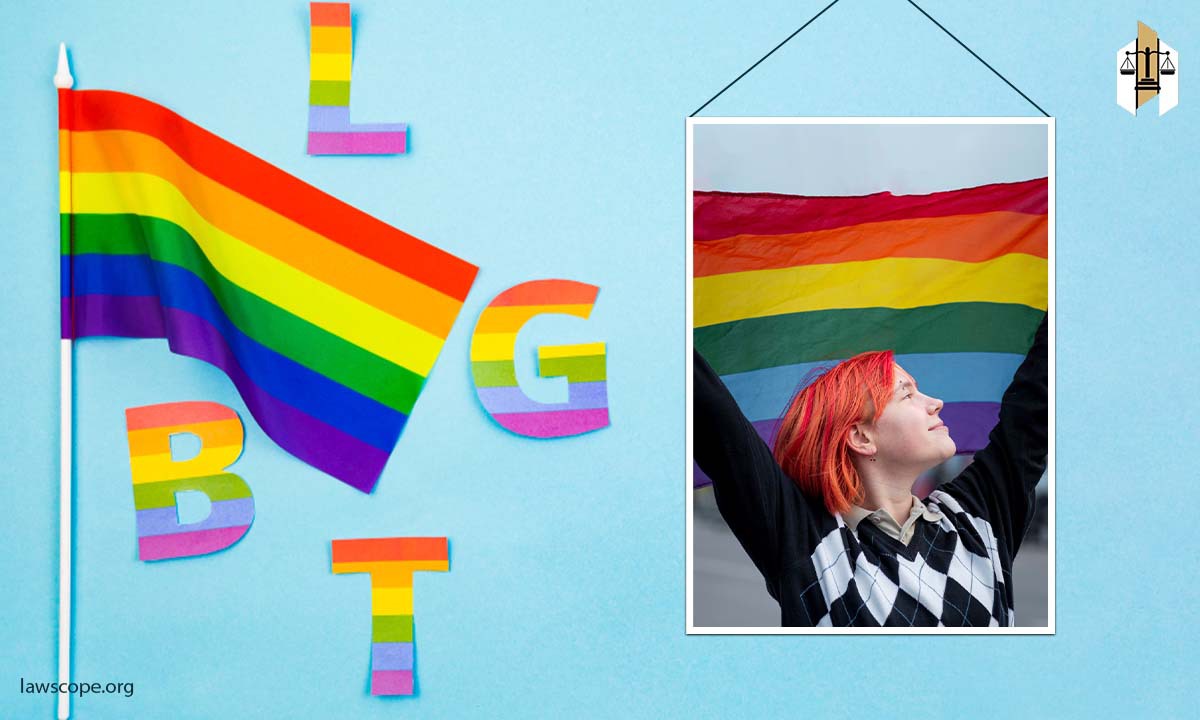
By now you have known about the LGBTQ, LGBTQ+, and LGBTQIA+ laws in the United States. Do you know about the anti LGBTQ laws?
Well, these LGBTQIA+ laws and anti LGBTQ laws exist side by side.
In this article, we will focus on the Anti LGBTQ Laws and know why they have been established.
What Is LGBTQ?

The word “LGBTQ” stands for “Lesbian, Gay, Bisexual, Transgender, and Queer (or Questioning),” which translates that it is a group of people having sexual orientations or identities other than those by straight and cis-gendered persons, who are perceived to be a majority.
Here’s what each term typically refers to:
- Lesbian: A woman who gets attracted to other women (emotionally, romantically, or sexually).
- Gay: A homosexual person, most commonly a man, emotionally and sexually attracted to people of the same sex.
- Bisexual: A person who is emotionally, romantically, or sexually attracted to both men and women.
- Transgender: A person not identifying with the gender assigned at birth but transitioning from one gender to another. However, this is the term that has gained favor, being all-inclusive for persons identifying outside the traditional gender binary of male and female.
- Queer: A critical concept under which an array of sexual orientations and gender identifications are put. It most often denotes a wider, more flexible collection of groups that don’t fit easily into the categories of a lesbian, gay, bisexual, or transgender.
Additionally, “Queer” can also be used as a political and social identity reclaimed by some LGBTQ individuals. The community is disposed toward the premise of equal opportunity, confirmation, and visibility for the LGBTQ community, steering clear of sexual inclination or gender identification impositions and prejudices.
Anti LGBTQ Laws: Expected, Enacted And In Process
The Human Rights Campaign says that LGBTQ+ people in the US are being treated unfairly by groups who want to hurt their rights. Extremist lawmakers are pushing record-breaking anti-LGBTQ+ bills.
Here’s what happened in 2023 regarding anti LGBTQ laws.
That’s more than 520 bills considered across states, 220 of which target transgender and non-binary people. It bans gender-affirming care, misgendering, and implements censorship. In 2023, at least 70 anti LGBTQ laws were introduced by banning gender-affirming care, misgendering, and censorship.
Trends And Topline Analysis For 2024
- In 2024, more anti-LGBTQ+ bills have been introduced in state houses than in the last five years. These bills strip away dozens of legal protections and rights for LGBTQ+ people are the newest form of attacks on the community.
- More than 125 bills would stop trans teens from getting the health care they need. Other bills would also stop transgender students from playing school sports. There are also more bills for bathrooms than any other year.
- Florida, North Dakota, Tennessee, and Texas have been the most aggressive in advancing anti-LGBTQ+ laws.
Important Bills In Advance (As of May 2023)
More than 145 anti-LGBTQ+ bills passed at least one chamber last year. Some important bills were in advancement in May 2023.
1. Arizona
- SB 1040 prohibits trans students and school personnel from using school restrooms that correspond with the gender they identify with, just as it permits people to sue schools for damages if a person shares a restroom or similar school facility with a trans individual.
2. Louisiana
- The legislation HB 648 proposes to prohibit the provision of gender-affirming care to transgender youth.
3. Ohio
- HB 6 would make it illegal for transgender students to play sports at school.
- SB83 would stop diversity, equity, and inclusion programs and/or training.
4. South Carolina
- H. 3728 would stop schools from requiring gender or sexual diversity counseling or training for students or staff.
5. Texas
- SB 17 would prohibit state colleges and universities from having diversity, equity, and inclusion offices.
- Senate Bill 12 would criminalize drag performances.
Important Bills Enacted (As of May 2023)
The following laws have also been passed.
1. Florida
- HB 1069 stops teachers from teaching about sexual orientation or gender identity from preschool to eighth grade. This goes beyond the “Don’t Say LGBTQ+ Law” that was passed in 2022.
- SB 254 would impose criminal penalties on providers who offer gender-affirming care, revoking their licenses, while also prohibiting Medicare from providing coverage in its programs for the same care for either youth or adults who are transgender. It also prohibits public funds from being used to provide gender-affirming care for transgender people of all ages. Gender-affirming care may give the state a unique claim or a chance to assert such a claim on behalf of a child to undo a state’s custody decision in the Florida family courts.
- HB 1521 makes it illegal for transgender people to use the bathroom that matches their gender identity.
2. Montana
- With SB 518 schools can misgender and force out transgender and non-binary students.
- With SB 458 the LGBTQ+ Erasure bill changes the definition of “sex” in Montana law.
- HB 676 allows parents to take their children out of public school if they don’t agree with the lesson plan for the day.
3. Nebraska
- LB 574 says that transgender kids can’t get the best healthcare for their age and they can’t have an abortion after 12 weeks of pregnancy.
4. Tennessee
- Under HB 239, the LGBTQ+ Erasure bill sets up an anti-LGBTQ definition of “sex” in state law.
- HB158 says that public education institutions can’t require implicit bias training.
- HB 1269 allows teachers to misgender and name transgender and non-binary students.
Additional Bills Against Anti LGBTQ Laws In The Final Stage
More bills are being worked on in the legislature or waiting for the governor to sign them.
1. Florida
- SB 170 would make it harder for cities to pass laws against discrimination by making it harder to propose laws and making it easier to challenge laws in court.
2. Iowa
- SF 496 would ban classroom discussions about LGBTQ+ topics in grades K-6 and require schools to forcibly out transgender students.
- SF 391/HF 327 anti LGBTQ law would remove information about HIV and AIDS from required curriculum standards.
3. Louisiana
- HB 648 would prohibit gender affirming care for transgender youth.
- HB 466 would make it illegal to say LGBTQ+ words in school.
4. Missouri
- SB 39 would make it illegal for transgender students to play sports at school.
- SB 49 would stop gender-affirming care for transgender youth.
5. Texas
- SB 14 would stop caring for transgender young people based on gender.
- SB 15 would make it illegal for transgender students to play sports at public colleges.
- SB 763 would allow chaplains to be public school counselors.
Related Content: Uganda Anti LGBTQ Law: Impact on Rainbow Community’s Rights
Final Thoughts
The Human Rights Campaign alleges US LGBTQ+ individuals are being treated unfairly by extremist groups, leading to over 520 anti LGBTQ laws and bills introduced in 2023, including 70 banning gender affirming care, misgendering, and censorship.
Last year’s national polls by the Human Rights Campaign show that Americans are increasingly opposed to anti-LGBTQ+ legislation, with 64% of likely voters stating there is too much legislation limiting transgender and gay rights.
Two surveys report opposition to bans on gender affirming care, 54% oppose laws restricting drag shows, and 60% disapprove of banning LGBTQ+ content in schools. The push is seen as excessive and political theater.
You May Like Also:


